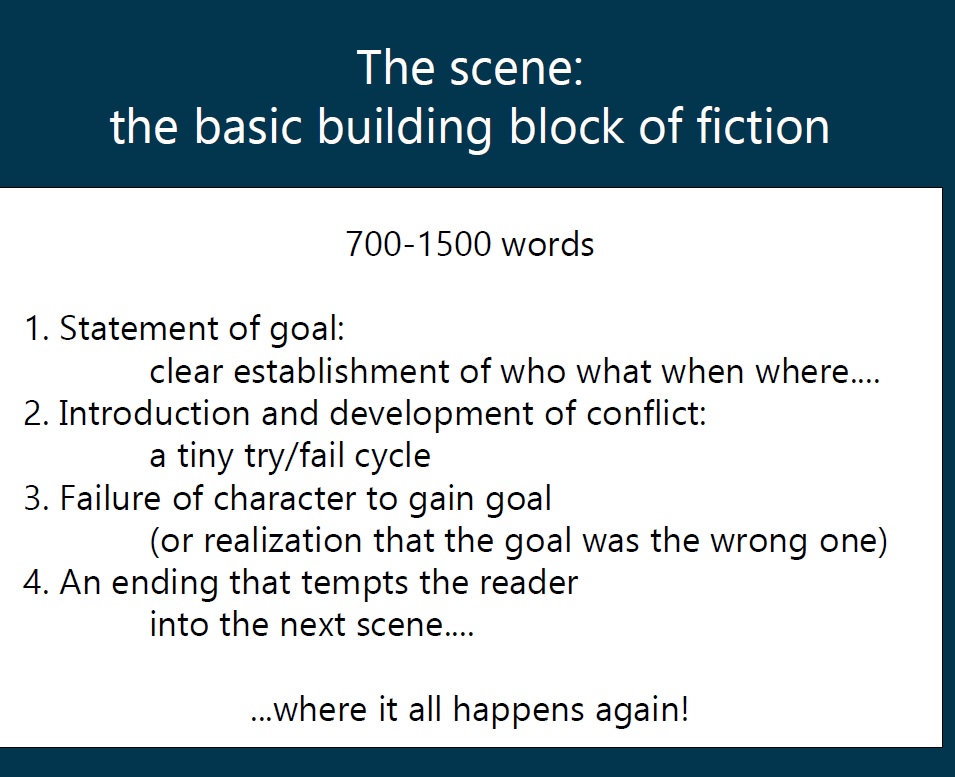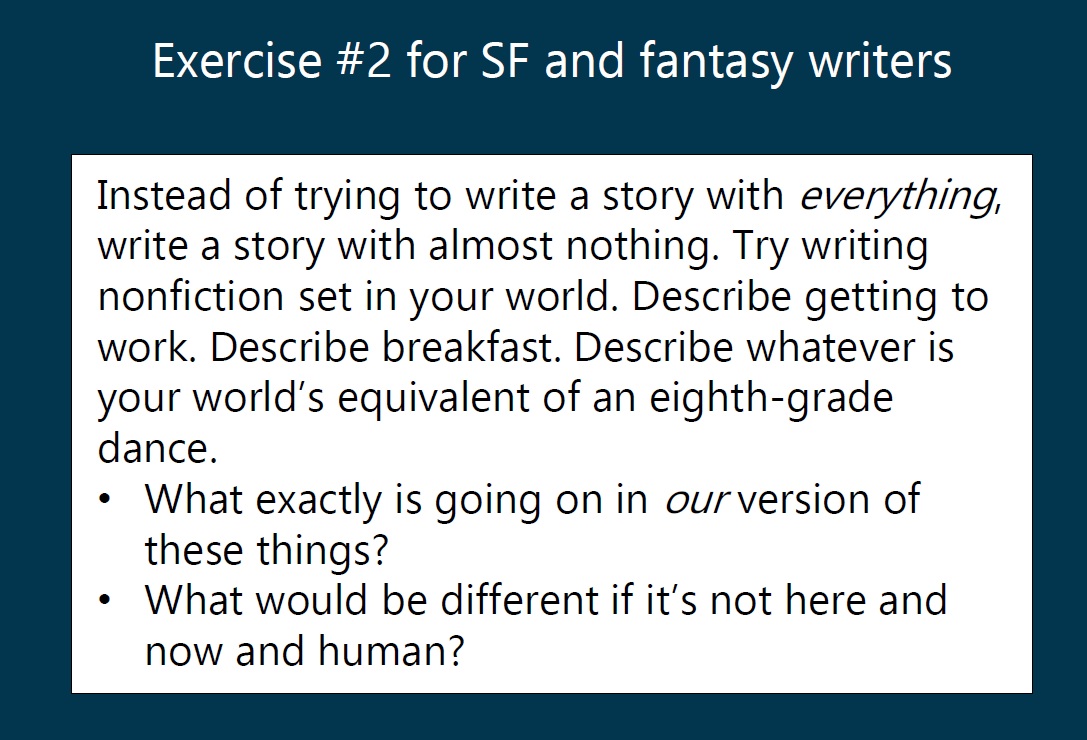Reward Your Reader Scene by Scene

Kij Johnson
A writer who is at the top of her craft and is also a revered teacher is truly worth her weight in gold. Earlier this year, our library was fortunate to host such a writer for a workshop – Kij Johnson. She is a superstar Sci-Fi and fantasy author who's won Hugo, Nebula and World Fantasy Awards. She also teaches fiction writing at the University of Kansas. and has taught summer workshops for the esteemed Gunn Center for Science Fiction at KU since 2005. In an interview with the library published earlier this year, Johnson notes that any writing teacher is only part of the formula that leads to good writers. Most of it is up to you.
“As a writer … your job is to integrate what say with what you already know or believe, look for the friction-points and then reconcile,” said Johnson.
Her one hour workshop at the library contained so much material that I’m only going to focus on a few tips in this article. I'll come back to Johnson again for more content later this year. The following tips are excerpted from my workshop notes. Read through, reconcile with your own experience and then get to writing!

An excerpt from Kij Johnson's powerpoint presentation dated February 3, 2019.
World Building—Scene by Scene
*The following is paraphrased from Kij Johnson's workshop, with many lines taken down verbatim. All credit belongs to Johnson and is published with her permission.
Writing fiction means world building, even in simple scenes. In real world fiction, it’s easier to let the reader do the work and fill in the scene with their own imagination, but writing fantasy and science fiction often means that the writer creates the world from the bottom up. If you want the reader to see and experience what they’re reading in a certain way, you have to create it that way. The reader is there for an experience, a feeling, and we have to give them what they need to help them see it.
Think of a story as a path, a line, or a string of words. The reader can only access the story as though walking backwards, seeing from the beginning. It unfolds as they go. Your job as a writer is to keep them interested, keep them reading, whether the path is short story length or novel length.
Scene is how a story is made, and where all of the surprise happens. We experience our own lives in scenes, so when we read we need change on the journey. So how do we keep readers interested as they go, and keep it exciting?
Rewards
One tip is to put a reward down after the first few feet, then another. These way stations on the path keep interest and give the reader delight. What do they find as they walk the path, and how does it lead them forward to continue the journey? Vary the rewards and the distance between them, to keep readers focused on the moment they are in, on the story as it unfolds.
Here are some examples:
- Surprise, but plausible – not first thing to come to mind or even second.
- A dragon is in the pasture. Is it going to eat us? What if it goes after chickens rather than cattle?
- Plausibility is critical to fantasy and Sci-Fi.
- Small revelations in character bring surprise. Maybe a character is very brave, but cries after a scene.
- Beautiful turns of phrase – bring delight with an unexpected string of words.
- Surprising resolutions and discoveries.
- Shifts between scenic and narrative prose. Perhaps a dream written so well that a reader falls into it. You can’t control everything a reader sees, but you can get close! Maybe write a scene that appeals strongly to the senses to hook the reader back in during an ebb an action.
- Recognizing something is important. Get your readers to slow down just a bit by adding emphasis to a detail that is important. Use more words so the reader slows down to take it in.
- Jaw-dropping – readers like guessing what’s going to happen, but there is more delight in thinking they have it figured out and then realizing they are wrong. They might get frustrated if you throw in a lot of red herrings so make sure you're being clever not tricky!
Get Hands-On
Practice writing a scene, keeping Johnson’s tips for engaging the reader with rewards in mind. Get ready to build a world!

An excerpt from Kij Johnson's powerpoint presentation dated February 3, 2019.
We have an excellent collection of books on the craft of writing, and hosts events to help you build skills and connect with your community. The 2019 Local Writers Workshop will be held on Aug 17. You can reach us at writers@tscpl.org with questions.












